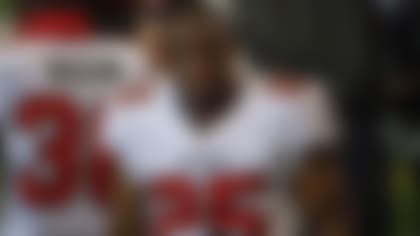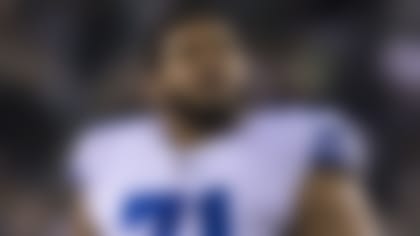The San Francisco 49ersplan to play defensive end Justin Smith against the Green Bay Packers on Saturday night, despite a partially torn left triceps tendon. Smith will wear a brace and wants to play, but should he be allowed? The injury to Washington Redskins quarterback Robert Griffin III raises the question: Does Smith risk long-term damage by playing?
"Well, he's told me he's ready and he's ready to go," 49ers defensive coordinator Vic Fangio told San Francisco Chronicle columnist Scott Ostler. "And that's enough for me."
That shouldn't be enough and that's the issue brought up by Griffin's situation. Of course players are going to want to play. It's the coaches that are responsible for protecting players from themselves. Or is it the doctors...?
"The doctors are always consulted," 49ers coach Jim Harbaugh said. "And the player knows his body the best, but the doctors have final decision. They're not going to just let a guy go out and play if he can't protect himself, or could severely make it worse than what it already is. That's a general rule of thumb.
"I think what Vic also said is that's not something that's in (Fangio's) hands. That's not something that we as coaches pretend to try to be in somebody else's body, or that we have our medical degree, either."
Tight end Delanie Walker was asked about the process.
"It's basically us," Walker said. The team doctor "will tell you he don't think you should (play), but if you feel like you think you can, they'd give you the OK. You know your body better than anyone."
Dr. James Andrews was already worried about RG3's knee before he played against the Seahawks and did more damage. Some staffs, like the Packers, are traditionally more cautious when it comes to player-health. And remember, team doctors are employees.
This isn't questioning the 49ers and their integrity. This is just another example of the current complexities present during the medical decision-making process.
Follow Kareem Copeland on Twitter @kareemcopeland.











